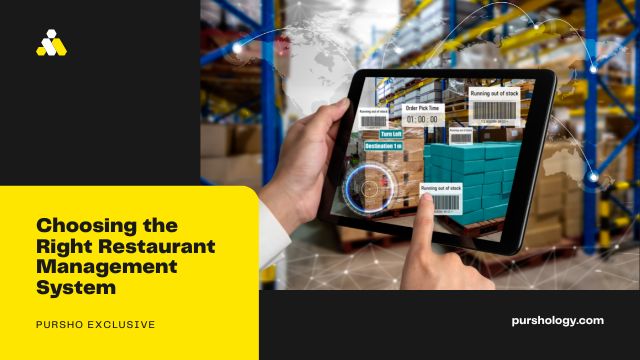
Before choosing a restaurant management system, there are a few factors you should consider. These factors include: functionality, PCI-DSS compliance, and features. A restaurant management system should keep track of customer data and sales, as well as allow for the addition of gift coupons and referral rewards. Not only will this help you better serve your customers, it will also allow you to use the software as a marketing tool. It will help you to gain back the loyalty of existing customers.
Functional requirements of a restaurant management system
Restaurant owners should choose the right system for their business. They should choose a system that can scale to multiple locations, automate customer segmentation, and let owners focus on the customer. They should also choose one that has features that will evolve over time. Choosing a system that cannot scale is a big risk, and it can end up being more expensive in the long run. There are several other factors to consider when choosing a restaurant management system.
First and foremost, they should be easy to use. Restaurant management systems should make it easy to manage menu items, table reservations, and payroll. They should also allow users to control comps, voids, and refunds. They should also make it easy for users to view order statuses and pre-authorize credit cards. In addition to being convenient, restaurant management systems should also help owners manage inventory. A restaurant management system will allow users to store and access data, manage staff, and manage inventory.
Inventory management features
A good inventory management system will integrate with your existing PoS system and update stock levels when customers make purchases. This way, you can be alerted when certain menu items are running low and prevent a costly shortage. You should also be able to easily add new vendors, create purchase orders, and send them electronically, which will reduce time spent chasing down purchases and prevent costly mistakes. Here are some tips to find the right restaurant management system for you.
A good restaurant software will also support the processing of debit and credit cards. EMV allows you to protect customer data against fraudulent payments and provides chargeback protection. According to Visa, chip technology cut counterfeit payment fraud by 80%. Other features to look for include multiple payment processing options, customer loyalty programs, and a loyalty program. An inventory management system will also offer many benefits beyond inventory management, including payment gateway integration and POS.
Employee scheduler
A restaurant management system that includes an employee scheduler is an excellent tool for managing your staff and ensuring they’re getting the right shifts at the right time. This software can also keep track of shift conflicts and new events so you’re always prepared. By creating an accurate schedule, the management can ensure that every employee gets the right shift and the system can also help you create a budget. In addition, this software helps you manage your labor costs more effectively and can also help you keep overtime under control. A good restaurant schedule software will also come with reporting features to analyze labor data and make adjustments based on those figures.
Many restaurant management software programs include an employee scheduler. These programs provide the information you need to manage your staff, including holiday schedules and off-days. They can also calculate payroll and labor costs, as well as provide information on paid time off and overtime. Restaurant managers can download these reports to better plan their staff scheduling. They’ll never make a mistake again! And with Humanity, mistakes are eliminated by the software’s intelligent alerts. These features allow you to set up a custom rate card that will suit your restaurant’s specific needs.
Compliant with PCI-DSS standards
In addition to avoiding high fees, a Restaurant management system that is compliant with PCI-DSS standards will increase your customer’s trust in your establishment. When you accept credit card payments, your business is responsible for protecting the information of your patrons. By securing your system, you can avoid a per transaction surcharge and expensive fines. If you are unsure of how to become compliant, consult with a qualified security assessor.
The PCI-DSS standard requires restaurants to implement security measures that protect customer data and prevent breaches. These standards include policies and procedures, hardware and software design, and network architecture. They also include Anti-Virus software, Firewalls, and other critical protective measures. A fully compliant environment will minimize the chances of a cyberattack and theft of data. To protect yourself from a potential cyberattack, make sure your Restaurant management system is PCI-DSS compliant.




 5 Best Tools For SEO | Top 5 SEO Tools For 2024 #Shorts #simplilearn
5 Best Tools For SEO | Top 5 SEO Tools For 2024 #Shorts #simplilearn 
 to Audit Your Website #searchengineoptimization
to Audit Your Website #searchengineoptimization 

